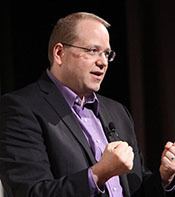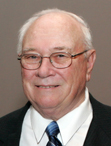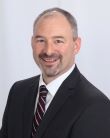Public Health Symposium
2024 Public and Allied Health Symposium
From Crisis to Recovery: Health Challenges and Community Rights
in East Palestine, OH
Keynote Speaker:
Thomas Linzey, Senior Attorney
Center for Democratic and Environmental Rights
April 4, 2024 from 11:00am-2:00pm
Bowen-Thompson Student Union, Lenhart Grand Ballroom
The Symposium will be offered free of charge
and will be offered in person and Live Stream
Program Agenda
11:00am – 11:10am BGSU President Dr. Rodney Rogers and Dr. Jim Ciesla, Dean of Health & Human Services
11:10am – 12:00pm Thomas Linzey, Senior Attorney. keynote address
12:00 pm – 12:30pm Lunch (free for registered guests)
12:30pm – 12:45pm Student Awards Presentation
12:45pm – 1:30pm The Public Health Response to the East Palestine, OH derailment
-Dr. Wes Vins, Columbiana County Health Commissioner
-Laura Fauss, MPH, Director of Environmental Health
-Dr. Getchen Nickell, Chief Medical Officer
1:30pm – 2:00pm Expert Panel Discussion and audience Q & A
-All speakers joined by Dr. Andrew Kear, Associate Professor, BGSU School of Earth, Environment, and Society
Continuing Ed Credits 2.5 hours
Nursing
CHES
REHS
Registered Dietician
Dietetic Technician
 KEYNOTE SPEAKER:
KEYNOTE SPEAKER:
Thomas Alan Linzey, Senior Attorney., is Senior Legal Counsel at the Center for Democratic and Environmental Rights, an organization committed to globally advancing the legal rights of nature and the environment. He is the co-founder of the Community Environmental Legal Defense Fund and is widely recognized as the founder of the contemporary community rights movement which has resulted in the adoption of several hundred laws across the U.S. and world. He is a cum laude graduate of Widener Law School and sits on the Board of Advisors for the New Earth Foundation. Linzey is the author of Be The Change: How to Get What You Want in Your Community, On Community Civil Disobedience in the Name of Sustainability, and is co-author of We the People: Stories from the Community Rights Movement in the U.S. His work has been featured in the New York Times, Los Angeles Times, Mother Jones, and the Nation magazine. In 2018, Linzey was named one of the top 400 environmentalists of the last 200 years by American Environmental Leaders.
BGSU's College of Health and Human Services hosts an annual Public Health Symposium
 The Ned E. Baker Lecture in Public Health was established in 1999 to honor Baker's many contributions to the field of Public Health. Ned Baker received a bachelor of arts degree in 1950 from Bowling Green State University and a master of public health degree in 1954 from the University of Michigan. In December 2009, he was presented an honorary doctor of science in public health degree by BGSU, and in April 2010 he was named one of BGSU's Most Prominent Alumni. Baker's professional career included service as a sanitarian with the Wood County Health Department and the Ohio Department of Health, a health planner and associate executive director for the Health Planning Association of Northwest Ohio and director for the Northwest Ohio Area Health Education Center at the Medical College of Ohio. He served 12 years on the Wood County Board of Health, including two terms as its president. In 1992, he was a founding member of the National Association of Local Boards of Health (NALBOH). As NALBOH's first executive director, 1995-98, he established the association's headquarters in Bowling Green, Ohio.
The Ned E. Baker Lecture in Public Health was established in 1999 to honor Baker's many contributions to the field of Public Health. Ned Baker received a bachelor of arts degree in 1950 from Bowling Green State University and a master of public health degree in 1954 from the University of Michigan. In December 2009, he was presented an honorary doctor of science in public health degree by BGSU, and in April 2010 he was named one of BGSU's Most Prominent Alumni. Baker's professional career included service as a sanitarian with the Wood County Health Department and the Ohio Department of Health, a health planner and associate executive director for the Health Planning Association of Northwest Ohio and director for the Northwest Ohio Area Health Education Center at the Medical College of Ohio. He served 12 years on the Wood County Board of Health, including two terms as its president. In 1992, he was a founding member of the National Association of Local Boards of Health (NALBOH). As NALBOH's first executive director, 1995-98, he established the association's headquarters in Bowling Green, Ohio.
Past Lectures
23rd Annual BGSU Public & Allied Health Symposium on April 6, 2023 at 11am. Event was titled Human Trafficking: Understanding the Impact through an Interprofessional Lens featured the Ned E. Baker keynote speaker Lara Wilken, DNP, RN. Dr. Wilken is an Assistant Clinical Professor of Nursing at BGSU and author of the book chapter Role Play as an Effective Method for the Identification and Assessment of Human Trafficking. Dr. Wilken described what human trafficking is, introduced the barriers to identification, and discussed the impact trafficking has on every person, as both a public health care crisis and social justice issue. Attendees viewed the issue through an evidence-based, survivor-informed, interprofessional lens and can gain a better understanding of their role and responsibility in preventing human trafficking. Dr. Wilken’s presentation was followed by a panel of individuals from Ohio, including a forensic nurse, a trafficking survivor, and a parent of a survivor. These real-life heroes shared their lived experience and explain the needs of those suffering from exploitation. This event was free and open to the public. We had in- person attendance or livestream. Lunch was provided for in person attendees.
Presenter: Dr. Amy Acton. As Director of the Department of Health for the State of Ohio during the COVID-19 pandemic, Dr. Acton combined scientific facts with an empathetic nature to guide the people of Ohio during an unprecedented crisis. Among many honors, Dr. Acton received the JFK Library Profile in Covid Courage Award for her leadership and service during the pandemic. Dr. Acton was recognized as USA Today’s 2022 Woman of the Year for the state of Ohio. Dr. Acton shared her reflections on leadership and her hopes for the future of public health with an audience of 500 virtual and in-person attendees. Dr. Acton was followed by breakout session speakers Ashley Hartman (Building Mental Well-Being), Taylor Lechner (The Effects of Covid-19 on Eating Disorders), and Krista Wasowski (The Future of Public Health).
Presenter: Dr. Damon Tweedy is the author of the New York Times bestseller Black Man in a White Coat, selected by TIME magazine as one of the Top 10 Non-Fiction books of 2015. He has published articles about race and medicine in the Journal of American Medical Association (JAMA) and other medical journals. His columns and op-eds have appeared in the New York Times, Washington Post, and various other print publications. Dr. Damon Tweedy travels frequently to speak to physicians and clinicians, healthcare companies, medical schools and teaching hospitals, and other organizations involved in health and wellness, about the impact of race on the medical profession at all levels. Dr. Tweedy spoke to a virtual audience of 300 people about how the medical education and health care systems have perpetuated health disparities. He explained the unique challenges and roles of Black healthcare providers in the delivery of health care and described strategies to mitigate the harms of healthcare provider bias and patient mistrust on health outcomes.
Presenter: Mindy M. Brashears is the U.S. Department of Agriculture’s (USDA) Deputy Under Secretary for Food Safety, the highest-ranking food safety official in the United States. In this role, Dr. Brashears leads the Office of Food Safety at USDA, overseeing the Food Safety and Inspection Service (FSIS), which has regulatory oversight for ensuring that meat, poultry and processed egg products are safe, wholesome and accurately labeled. She also serves as chair of the U.S. CODEX Policy Committee and offers expert scientific guidance to the CODEX Program, an international food standards-setting body of 188 member countries, that protects consumer health and sets international food standards. Erin Powell is a registered dietitian who works for Michigan State University Extension in Flint, Michigan. She provides leadership to distance education, social media, and policy, systems and environmental change initiatives for the Supplemental Nutrition Assistance Program - Education (SNAP-Ed) and the Expanded Food and Nutrition Education Program (EFNEP). As Erin is located in Flint, MI, she provided much leadership to material development and program adaptation to meet the needs of residents during the Flint Water Crisis. She received her undergraduate degree in dietetics from Ohio State University and her graduate degree in nutrition from Kent State University, where Erin also completed her dietetic internship.
Presenter: Dr. Norbert Kaminski received his BA in Chemistry from Loyola University of Chicago and an MS and PhD in Toxicology & Physiology from North Carolina State University. He has served as Professor of Pharmacology & Toxicology at Michigan State University since 1988 and was appointed as the Director of the Institute for Integrative Toxicology at MSU in 2004. Dr. Kaminski has published over 150 peer-reviewed, scholarly articles detailing the effects of cannabinoids on human immune system functioning. His current research involves signal transduction events initiated through as well as independently of cannabinoid receptors, including the peroxisome proliferator activated receptor (PPARy), leading to aberrant cytokine gene expression by T lymphocytes.
Presenter: Dr. Shannon Manning, a Michigan State University (MSU) associate professor in the Department of Microbiology and Molecular Genetics (MMG), earned her M.P.H. and Ph.D. from the University of Michigan (UM) in 1998 and 2001. For her postdoctoral training, she served as an emerging infectious diseases research fellow through the Centers for Disease Control and Prevention and held positions at UM and MSU. She joined the MMG faculty in 2010. Her current research focuses on the molecular epidemiology, evolutionary genetics, and pathogenesis of bacterial pathogens including diarrheagenic Escherichia coli and Streptococcus agalactiae , which she has been studying since 1996.
Presenter: Dr. Shannon Orr, BGSU associate professor and environmental policy expert
Orr has been studying climate change for more than a decade, and has attended a number of the United Nations climate change treaty negotiations, most recently in Paris in 2015. Her research has focused extensively on the role of competing interests in the negotiations, and has included a number of international surveys, as well as extensive interviews with government delegates, activists and business representatives.
Presenter: Dr. Bechara Choucair, Senior Vice President for Safety Net Transformation and Community Benefit, Trinity Health.
Choucair discussed how social media can strengthen overall public health communication; how social media strategies implemented in Chicago and NW Ohio improved public health; the evaluation findings of social media used by the Chicago Department of Public Health and NW Ohio; and how to engage key community partners to incorporate innovation and technology into public health planning.
2014 - Academic Health Departments: Strengthening the Quality and Performance of Public Health Practice
Presenter: C. William Keck, MD, MPH, FACPM, Professor Emeritus and former chair of the Department of Family and Community Medicine at the Northeast Ohio Medical University, and former director of health for the City of Akron.
As the role of public health has changed over the years, the need to respond to those changes has been important. Keck highlighted the challenges currently facing local departments of health and discussed the synergistic roles of public health practitioners, clinicians and academics in this era of health service delivery reform.
Presenters: Dr. Judy Jackson May, Associate Professor and Graduate Program Coordinator, Educational Administration and Leadership Studies, Bowling Green State University.
Dr. Patrick Pauken, Vice Provost for Governance and Faculty Relations and Secretary to the Board of Trustees, Bowling Green State University
Through the leadership lens of authors James Kouzes and Barry Posner and their ten truths of organizational leadership, the presenters applied research practices to the field of public health. The presentation explored how to create a culture of quality and excellence in organizational performance, demonstrated effective governance through leadership, identified successful keys for maintaining excellence in organizational performance, and provided examples of leadership practices to connect constituent vision through Kouzes and Posner’s five examples of exemplary leadership.
Presenter: Andy Goodman, Director, The Goodman Center
Since we first began talking to each other, telling stories has been an effective way to capture attention, engage an audience, and motivate them to act. Modern technology has given us new tools to help us communicate – think Twitter and Facebook to name just two – but in our fervor to remain cutting edge and professional in public health, we often ignore our natural inclination to tell a good story. Andy Goodman explained why he believes storytelling remains the single most powerful communication tool we possess, and offered specific ways organizations can use stories to advance their mission in public health.
Kristen Grimm, founder and president of Spitfire Strategies, was the speaker for the 2011 Ned E. Baker Lecture in Public Health. Ms. Grimm discussed using marketing "to help get people to do the public health behaviors we want them to do."
Information was presented concerning how public health policy makers can prepare their communities for policy changes, including how proven persuasive strategies can support adoption of public health policies. Key concepts to build into public health policies were identified that would increase effectiveness and avoid unintended consequences. Concluding comments included how to evaluate the impact of public persuasion on the effectiveness of public health policies.
The topic of the 11th annual Ned E. Baker Lecture in Public Health was "A Growing Hunger: The Nation's Demand for Food Safety and Nutrition Information." A panel of speakers, moderated by Dr. Bruce D. Dart, president of the National Association of County and City Health Officials (NACCHO), discussed food safety and nutrition as public health issues. Panel members included Dr. Claudine J. Kavanaugh, an interdisciplinary scientist with the Food and Drug Administration (FDA); Keith Krinn, administrator of the Environmental Health Division of Columbus (Ohio) Public Health, and Dr. Margo Wootan, director of nutrition policy at the Center for Science in the Public Interest (CSPI).
Moderator: J. Nick Baird, M.D. is the chief executive officer of the Alliance to Make US Healthiest, a collaborative effort of the Centers for Disease Control and Prevention, the Association of State and Territorial Health Officials, and the National Association of County and City Health Officials. The Alliance's mission is to transform the nation's health system to make the U.S. the healthiest nation in a healthier world.
Panelists: Stephanie B.C. Bailey, M.D., M.S.H.S.A. is chief of Public Health Practice of the Centers for Disease Control and Prevention (CDC), U.S. Department of Health and Human Services. Her office, which provides leadership in building and supporting public health infrastructure, is responsible for serving as an advocate, guardian, promoter and conscience of public health practice throughout the CDC and in the larger public health community. Bailey was appointed to four national committees by Health and Human Services Secretary Michael Leavitt, including the Advisory Board to the Director of CDC. Panelist: Lt. General Russel Honoré (Ret.), has been dubbed the "Category 5 General" for his work during the aftermath of Hurricane Katrina. Following the destruction of the devastating hurricane, Honoré brought leadership to New Orleans, reminding soldiers to lower their weapons and help those in need, creating a more positive atmosphere as rebuilding began. An expert in preparedness and responding to catastrophe, he offers insights into protecting people and organizations, outlining the principles necessary to lead through unexpected and uncontrollable crises.
Panelists discussed rebalancing public health priorities. As prevention is the key to providing value based health care and emergency disaster management, panelists emphasized that Americans are not getting a good return on health and well being investments in a system that focuses on tertiary involvement.
Hugh H. Tilson, M.D., is one of the original members of the Institute of Medicine's report on The Future of Public Health. He also contributed to the follow-up report The Future of the Public's Health in the 21st Century. He spent 15 years in public service including city/county public health officer and human services director for Multnomah County in Portland, Oregon, and state public health director for North Carolina. He was president of the National Association of County and City Health Officials and spent 15 years with Wellcome Foundation as pharmacoepidemiologist. In 1996, he joined the clinical faculty of University of North Carolina School of Public Health in Chapel Hill.
The content and the impact of the Institute of Medicine's, 1988 report, "The Future of Public Health" was presented. The lessons learned over the last twenty years and how to apply this new understanding to current challenges and opportunities in public health were also discussed.
Leslie M. Beitsch, M.D., J.D., is director of the Center for Medicine and Public Health and a professor of health policy at Florida State University. From 2001-2003, he was the commissioner of the Oklahoma State Department of Health. He served as deputy secretary and assistant state health officer for the Florida Department of Health from 1997-2001, where he provided guidance and direction for public health programs, the county health departments, the state laboratory and pharmacy. He is a member of the board of directors of the Public Health Foundation and the Public Health Leadership Society.
Public health care standards and their relationship to the Ten Essential Public Health Services were discussed. The benefits of public health accreditation through a voluntary national program which offers the opportunity to increase accountability and improve the quality of public health care services were also presented. Local and state public health leaders were encouraged to act in concert for accreditation to embrace meaningful systems improvement.
David Mathews, Ph.D., is president, chief executive officer, and trustee of the Kettering Foundation. Before coming to the foundation in 1981, Dr. Mathews served as U.S. Secretary of Health, Education, and Welfare in the Ford administration.
Health professionals have historically worked with communities for effective implementation of public health programs. How public participation is essential to appropriately define health issues, identify acceptable solutions, and guide program implementation was presented.
Vaughn Mamlin Upshaw, DrPH, Ed.D., is a Clinical Assistant Professor in the Department of Health Policy and Administration at the University of North Carolina at Chapel Hill, School of Public Health. From 1987-1993, she served as the Director of the Association of North Carolina Boards of Health where she implemented a $400,000 grant funded by the W.K. Kellogg Foundation to develop leadership training and orientation programs for local boards of health. Upshaw was a founding member of the National Association of Local Boards of Health and is a past-president.
The policy environment for local elected officials was discussed as well as identification of the challenges and opportunities for local public health policy. The speaker illustrated ways to elevate public health issues within the local policy-making process and provided examples of local elected officials' support for public health policies.
Richard J. Jackson, M.D., MPH, served as division director for both the Division of Infectious Disease Control and the Division of Environmental Hazard Assessment with the California Department of Health Services. Dr. Jackson is the senior advisor to the Director of the Centers for Disease Control and Prevention (CDC).
The CDC's Environmental Health Strategic Plan highlighting priority issues and goals in urban planning, health and mental health care was presented. Delineation of the CDC's local partnership's responsibilities was discussed along with the CDC's time lines for implementation and parameters used to evaluate progress.
Vincent T. Covello, Ph.D., founder and Director of the Center for Risk Communication, is a nationally and internationally recognized trainer, researcher, consultant, and expert in crisis, conflict, change and risk and crisis communications.
Professionals were provided techniques that could be used to identify effective risk and crisis communication strategies. Additionally, tools and resources available from the CDC to help participants effectively prepare for bio-terrorism emergencies were presented.
Susan Scrimshaw, PhD, Dean, School of Public Health, University of Illinois at Chicago.
Michael E. Bird, MSW, MPH, President of the American Public Health Association (APHA).
C. William Keck, MD, MPH, Director of the Akron Health Department and Past President of the American and Ohio Public Health Associations
Updated: 04/11/2024 01:13PM



